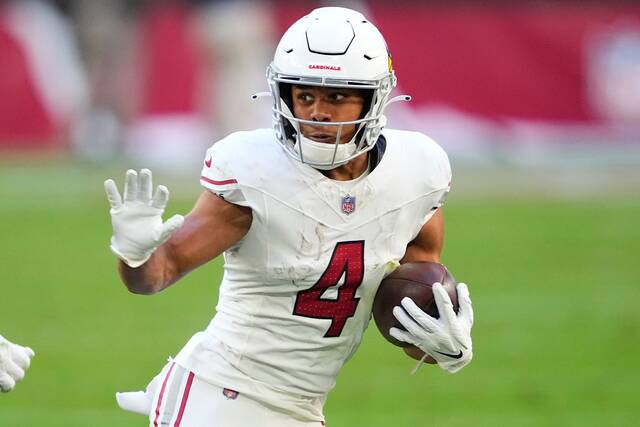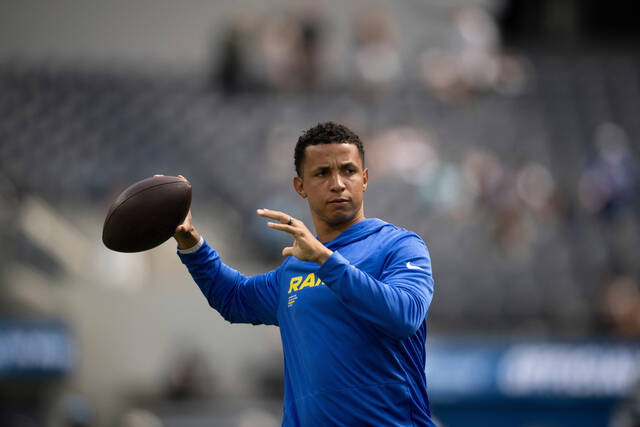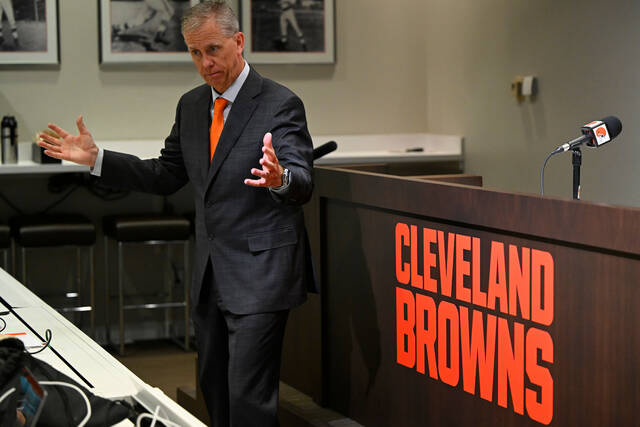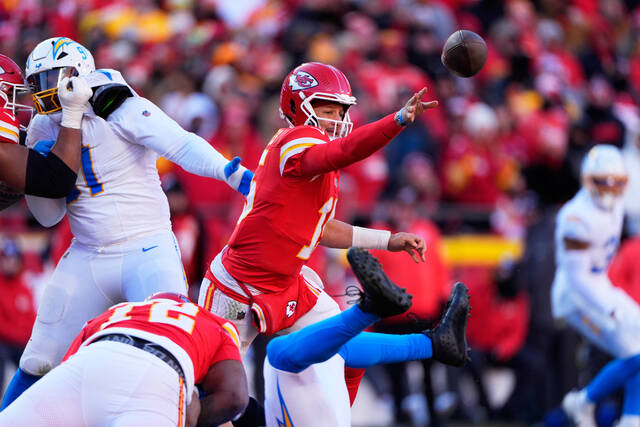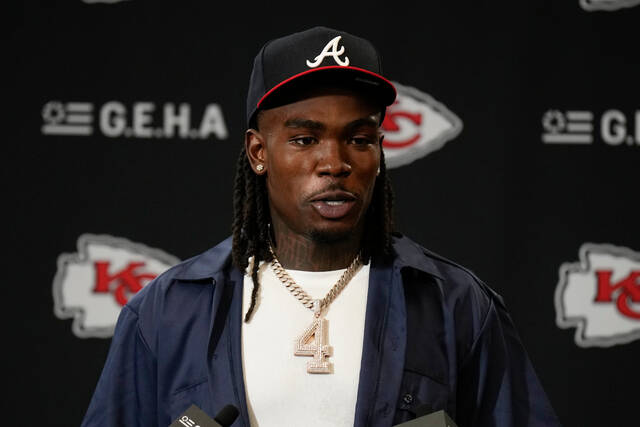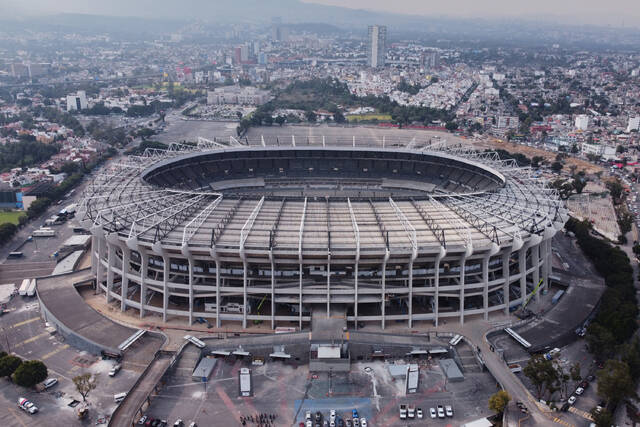WASHINGTON — During his annual pre-Super Bowl news conference this week, NFL Commissioner Roger Goodell sidestepped a question about President Donald Trump’s complaints that the game had gone soft, insisting, “We have a lot of fans, the president among them.”
Trump may sometimes sound like Joey from Tarzana or some other talk-radio caller, screaming about “S.O.B.” players who should be “fired!” for kneeling during the national anthem. But as president, he has generated far more headaches for NFL team owners.
For two years, at rallies and in tweets, Trump’s slams against the NFL players’ protest stoked divisions over race and patriotism. Last fall, however, the president ceased his attacks, even calling the NFL a “great American company” during a rally in Minnesota.
The baffling ceasefire has continued as the league prepared for its annual showcase, the Super Bowl, on Sunday between the Los Angeles Rams and the New England Patriots. Yet even as NFL owners are relieved to have Trump off their backs, the raw memories of his past taunts falsely impugning players’ patriotism and even the games’ television ratings have left them wary of setting him off again.
People who work in and around the league, as well as current and former administration officials, attribute the truce to a number of factors. Among them: league owners’ capitulation to his demand that they curb on-field player protests, the rebound in TV ratings and, perhaps, Trump’s sense that he had squeezed all the political juice he could from the issue.
But the decisive event, according to several people, may have been an overture from one of Trump’s closest friends, Patriots owner Robert Kraft, seeking his assistance on an obscure trade issue that would allow the league to reap millions more dollars from Canadian broadcasting rights to the Super Bowl.
“He was quite happy he could get that problem solved,” said a senior White House official, who spoke on the condition of anonymity. “The tension eased after that.”
Trump’s ability to deliver a favor for the league’s billionaire owners — a club that shunned him for decades as he sought to buy his own team — gave him an opportunity to declare victory while the NFL hierarchy bowed to his power. He had failed as an owner in a rival league in the 1980s, and his subsequent attempts to buy a coveted NFL franchise — including the Buffalo Bills in 2014 — were consistently rebuffed.
“He has the ultimate consolation prize in that he gets to sort of heckle from the Oval Office,” said Mark Leibovich, author of “Big Game: The NFL in Dangerous Times.” “He loves wielding power over powerful, wealthy people — especially powerful wealthy people that have rejected him over four decades.”
Trump learned the power of bashing the NFL late in his 2016 presidential campaign. It was risky in a way, given that football fans hold a variety of political views.
But the decision that year of San Francisco 49ers quarterback Colin Kaepernick to kneel during the national anthem, to protest police brutality and racial injustice, proved too alluring for the president. Trump literally wrapped himself around an American flag pole at rallies, stoking white racial anxiety.
“Whenever the president finds himself in a political pickle — to put it crudely — he reaches for the culture wars,” said Eddie S. Glaude Jr., chairman of the Center for African American Studies at Princeton University.
The president ignored the racial message that the mostly African American players sought to convey. He learned quickly that he could elicit loud, appreciative boos whenever he disparaged Kaepernick or accused players of disrespecting the anthem and the flag.
The president’s rhetoric peaked just ahead of the 2017 football season, when Trump held a rally in Alabama for Sen. Luther Strange, a Republican running in a special election. Trump, trying to rouse the listless crowd, seized on the protests.
“Wouldn’t you love to see one of these NFL owners, when somebody disrespects our flag, to say: ‘Get that son of a bitch off the field right now? Out. He’s fired. He’s fired!’” Trump said, his voice building to a near-roar.
He blamed the league’s poor ratings on the controversy and urged supporters to “pick up and leave” a game if players protest, something Vice President Mike Pence did a month later in Indianapolis, in a move that detractors claimed was staged.
Team owners, who take pains to insulate the league from politics and market the sport with displays of patriotism, were petrified.
“They didn’t know what to do,” said Ari Fleischer, a former spokesman for President George W. Bush who has been a communications consultant for several teams. “They were flummoxed. Who in sports knows what to do when you’re attacked by the president of the United States?”
The NFL, which was facing a more existential threat over players’ brain injuries, doubled its federal lobbying budget in 2018 from the prior year, to $1.64 million, more than it had ever spent, according to the Center for Responsive Politics. The owners also began direct talks with Trump to implore him to stop his attacks, to no avail.
“This is a very strong, winning issue for me,” Trump told Dallas Cowboys owner Jerry Jones, according to a deposition in a grievance filed by Kaepernick, who accuses the league of colluding to end his career. The deposition was reviewed by the Wall Street Journal last year.
“Tell everybody you can’t win this one,” Trump told Jones. “This one lifts me.”
Another owner, the Miami Dolphins’ Stephen Ross, testified that the president’s message was delivered to fellow owners, and squelched any support among them for the players’ protests. The league would eventually create policies that effectively kept most players from kneeling during the anthem. The effort alienated many fans and celebrities but began the process of quieting Trump.
“I don’t think there’s any doubt that the owners capitulated,” said Mark Geragos, Kaepernick’s attorney. “The NFL has decided that Colin is a persona non grata and I think they’ve done it because of Trump.”
A former White House official largely agreed, saying the NFL’s decision to keep protesting players in the locker room during the anthem deprived the media-savvy Trump of a visual image to target.
NFL officials did not respond to requests for comment.



